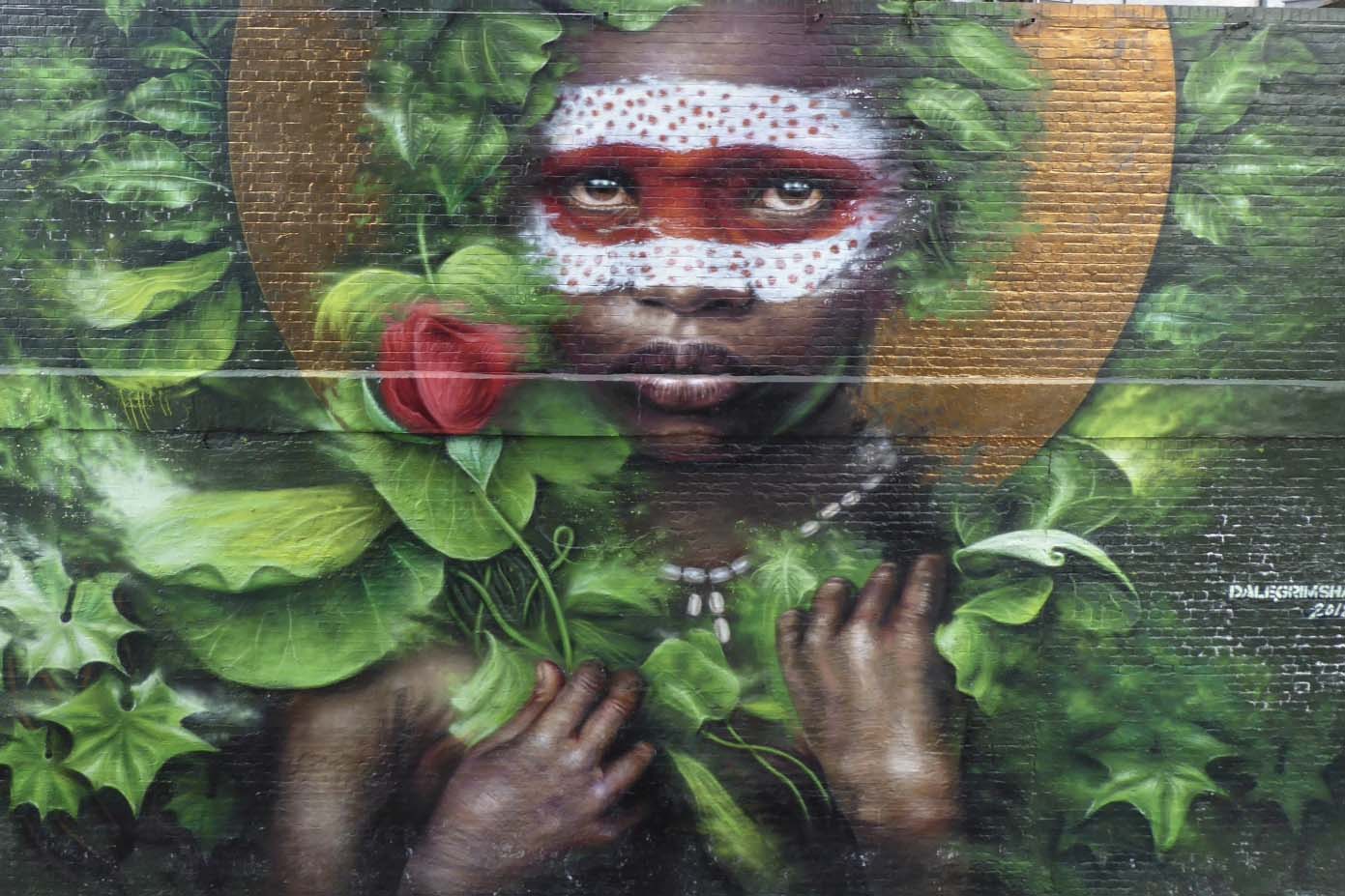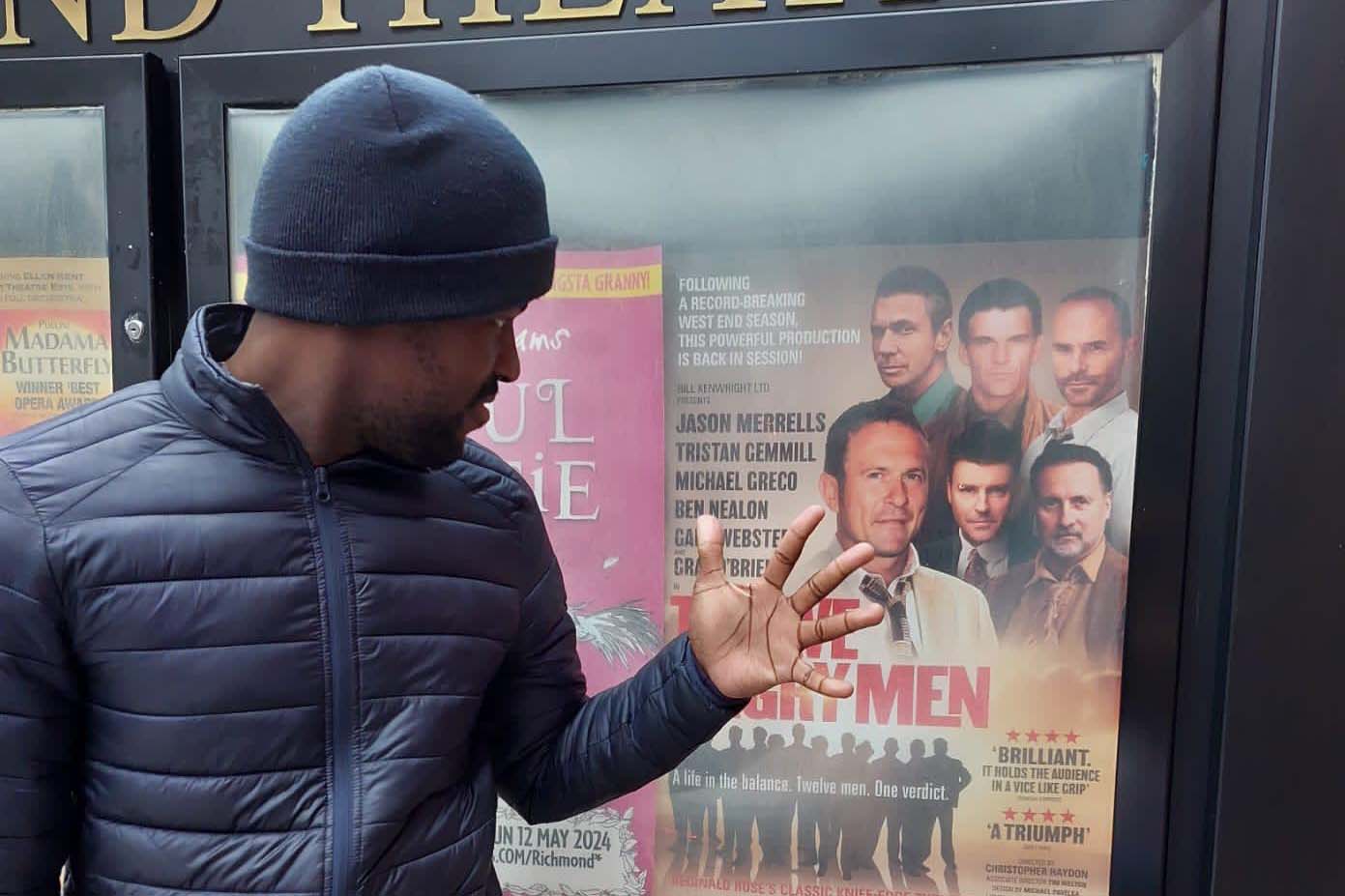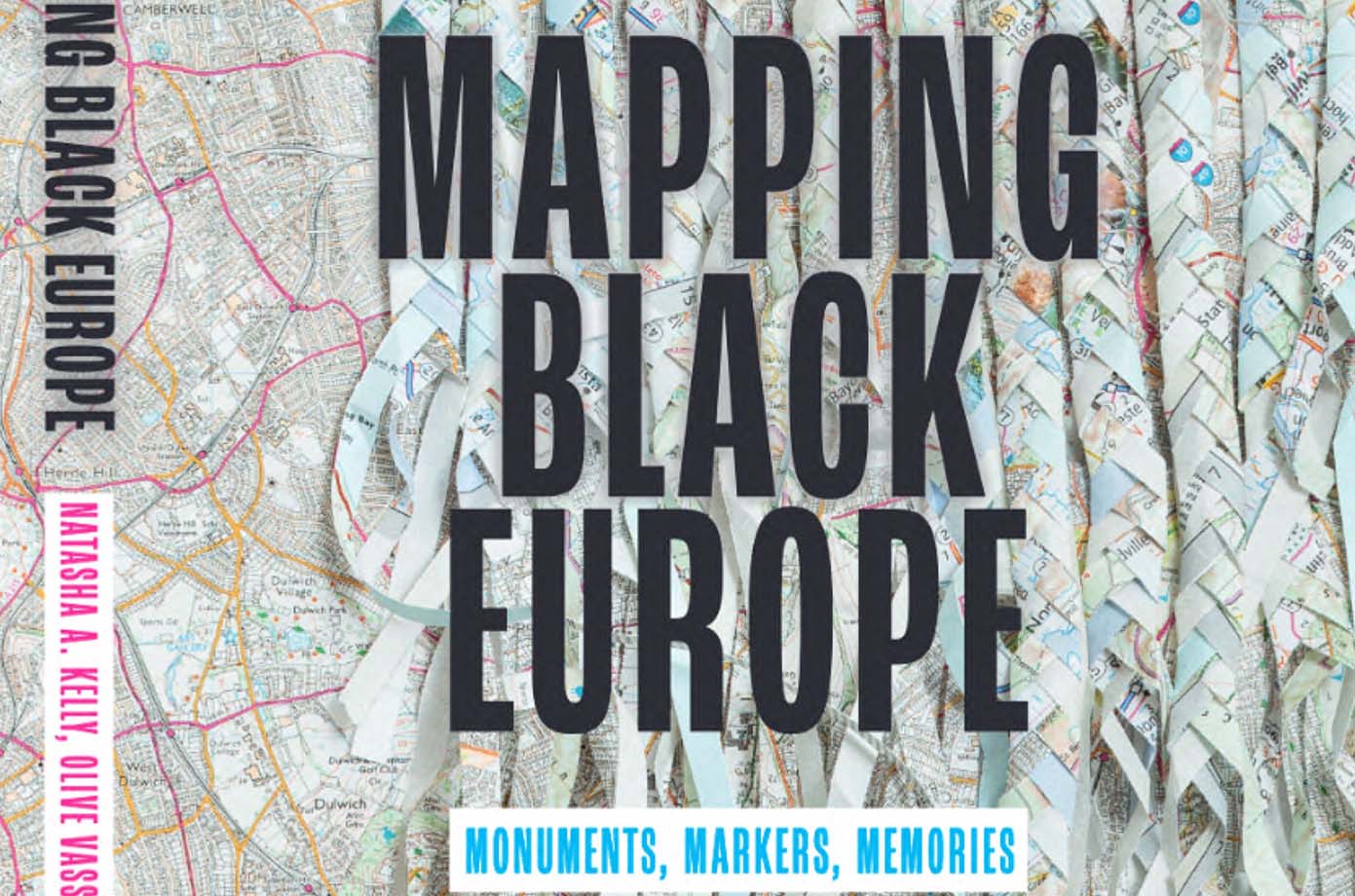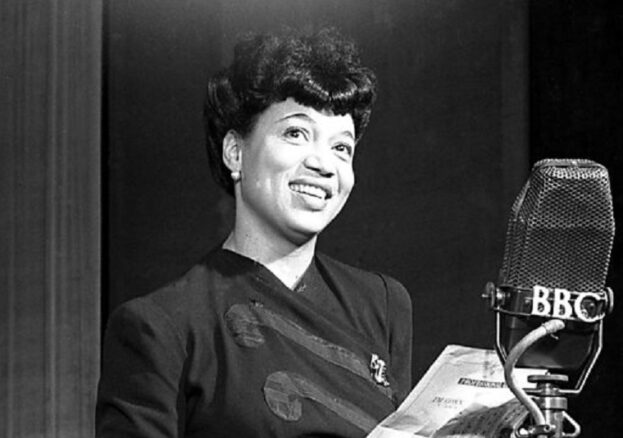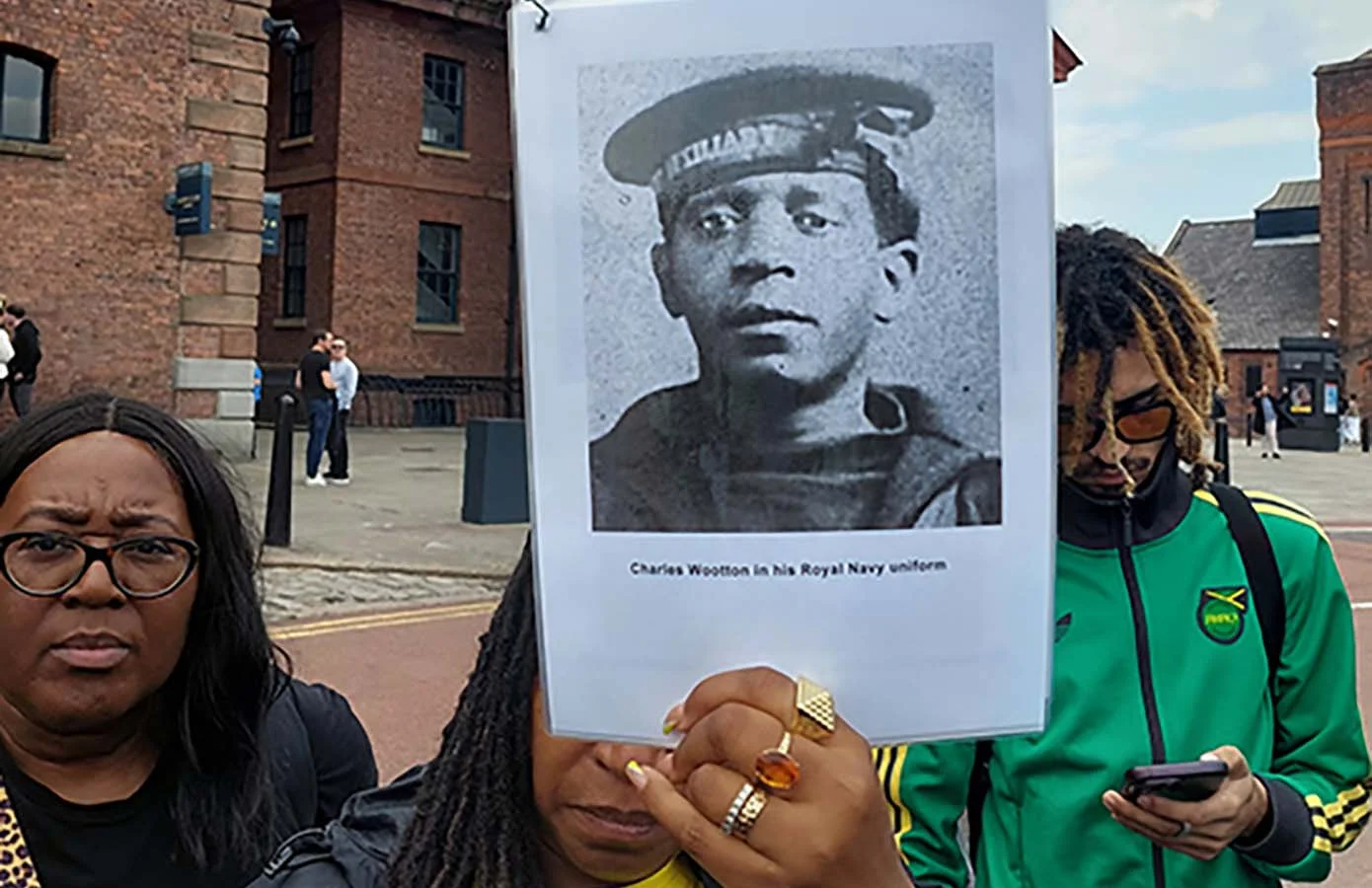
Former sailor Charles Wootton who was killed during Liverpool’s race riots in 1919 is featured in a tour of Black Liverpool. In 2023, a permanent headstone was placed on his unmarked grave. Photo: Lisette Felix.
Liverpool: The UK’s oldest Black community
BY LISETTE FELIX
The roots of Blackness run deep in Liverpool. Home to the nation’s oldest Black community, it is multi-layered and multi-time with Black immigration stretching across centuries.
“The Black community has been here [sic] in Liverpool since slavery times,” said Charmaine Simpson, founder of Black History Studies, who leads a walking tour of the city. With a focus on the experiences of African-Caribbean people, the tour starts at the International Slavery Museum and weaves its way through the town, highlighting monuments and buildings such as the Royal Liver Building, known locally as one of the Three Graces, symbolizing Liverpool’s status as a major global port. The others are the Cunard Building and the Port of Liverpool Building. “All represent the prosperity of Liverpool that was built on the backs of slavery,” said Simpson.
The city’s early Black residents included Loyalists who fought on the side of the British government during the American Revolutionary War. In the 19th and 20th centuries, they were followed by students, sailors, and soldiers from the Caribbean and West Africa, particularly Jamaicans, Trinidadians, Belizeans, Guyanese, Nigerians, Ghanaians, and Gambians. One resident, James Clarke [1886-1946], a lifeguard who saved many locals from drowning in the Mersey River, was the first Black man to have a street named after him. Meanwhile, John Archer, the first Black mayor in London in 1913, was also born there.
After the Second World War, the Black population significantly increased with the arrival of the Windrush generation, West African merchant seamen, and the Black American GIs who stayed on – their presence enriched the already vibrant local culture in areas like Toxteth or Liverpool 8. Located at the South end of the city, it is the most densely populated ‘Black area’ in Liverpool according to the 2021 census.
Facing racial hostility from the outset, Blacks have endured several violent attacks over the years, including the race riots of 1919 when white mobs stormed Toxteth where many lived. In 1948, violence erupted again when returning from the war and facing increased competition for jobs and housing, whites clashed with Blacks. In 1981, Toxeth was again the site of the most well-known uprising over local police practices such as the use of the stop and search laws (sus).
The 20th and 21st centuries have seen an increased prominence of Black residents. Among them: Glynn George Pratt, of Nigerian heritage, who was elected as labour council to Liverpool council in 1972; Actor and TV presenter, Craig [1980s’ Red Dwarf and Coronation Street]; Toxeth native Natasha Jones, Britain’s first female boxer, who has held the WBO female junior middleweight title since 2022 and Heptathlete Olympic gold medalist, Katarina Johnson-Thompson.
For more on the city’s Black history visit:
National Museums Liverpool
https://www.liverpoolmuseums.org.uk/black-history
Liverpool Black History Research Group
Watch this short film about the commemoration of Liverpool’s first Black citizen.
Elisabeth Welch, a name that resonates with timeless elegance and unparalleled talent. Born in 1904, Welch was a trailblazing African-American singer and actress who left an indelible mark on the entertainment industry. Her career spanned decades, showcasing her versatility in jazz, blues, and musical theater.
Welch’s voice was a mesmerizing instrument that transcended boundaries, captivating audiences on both sides of the Atlantic. From her early performances in the Harlem Renaissance to gracing London’s West End stages, Welch’s charisma and vocal prowess earned her widespread acclaim.
Beyond her musical prowess, Welch made history as one of the first African-American women to star in a British film during the 1930s. Her legacy is not only defined by her groundbreaking achievements but also by her resilience in the face of racial and gender barriers.
Elisabeth Welch’s journey is a testament to the enduring power of talent and tenacity. As we celebrate her contributions, let us remember and honor a woman whose artistry continues to inspire generations, leaving an indomitable legacy in the annals of entertainment history.

